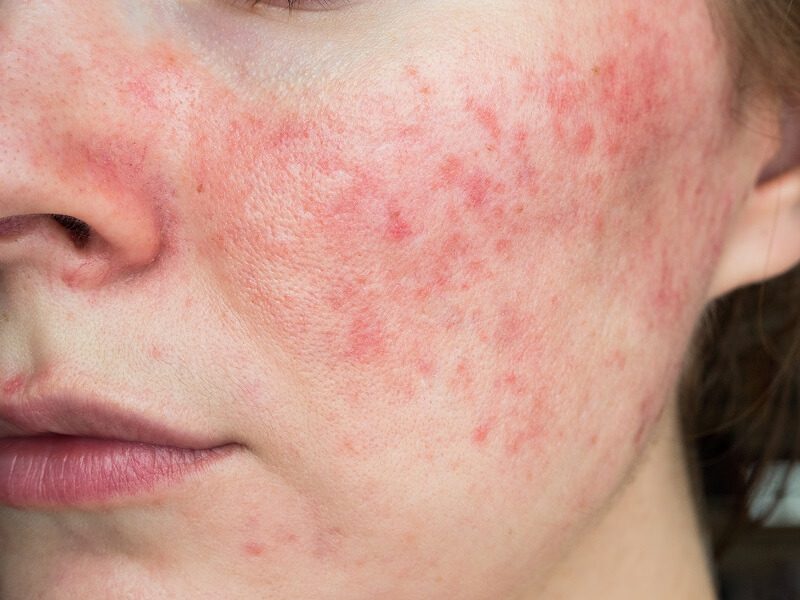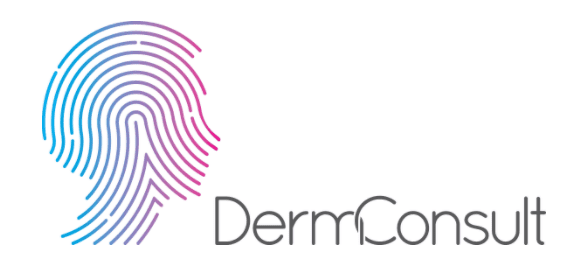ROSACEA TREATMENT FROM DERMCONSULT
Looking for effective Rosacea treatment that works?
We offer bespoke Rosacea treatment plans that are individual to you and your skins’ needs.
Book A Consultation
LEARN MORE ABOUT ROSACEA
WHAT IS ROSACEA?
Rosacea is a rash that affects the central face. It is common in between the ages of 30-60 and mostly affects people with fair skin. It is a chronic condition that is characterised by redness, flushing, dilated blood vessels, small red bumps and in severe cases pus-filled spots. Rosacea may also affect the eyes and nose. It is sometimes confused with acne, however, these are two different skin conditions.
It is unknown what exactly causes rosacea but multiple factors are thought to be involved. Known contributors are skin damage due to repeated ultraviolet (UV) light exposure, the skin’s natural immune response, alcohol, spicy food and stress.
HOW IS ROSACEA DIAGNOSED?
A dermatologist can usually diagnose rosacea solely by appearance without the need for tests. If you think you have Rosacea, the symptoms are typically easy to recognise. However, you can book to see a dermatologist if you feel you want a professional diagnosis and would like to receive a treatment to manage the symptoms.

Expertise
Before & After Treatment
Our Fees
We’re Always Transparent About Cost
COMMON SIGNS OF ROSACEA ARE:
- Persistent redness
- Facial flushing
- Visible blood vessels
- Irritation of the eye area
- Pimples or bumps
- Raised red patches
- Inflamed eyes/eyelids
- Burning or stinging sensation
- Thickening of the skin
PHASES OF ROSACEA
Stage 1: Vascular/telangiectatic Rosacea – Persistent facial flushing and redness
Stage 2: Papulopustular Rosacea – Bumps and pimples, persistent redness,
Stage 3: Phymatous Rosacea – Thickened skin around nose area,
Stage 4: Ocular Rosacea – Dry and irritated eyes and excessive tearing, burning and pain.
HOW IS ROSACEA TREATED?
There are many treatment options. Oral antibiotics such as tetracyclines have proven helpful. Topical creams or lotions such as those containing azelaic acid, metronidazole and ivermectin can help reduce inflammation in mild rosacea. Other creams can reduce the appearance of redness immediately after application. Vascular lasers are effective in removing persistent, small, dilated vessels/broken capillaries
Rejuvenate Your Skin
Think you might need rosacea treatment?
If you are suffering from rosacea, simply get in touch and book your consultation with our friendly team. At DermConsult we’re committed to providing the very best quality care and a personalised service for each and every one of our patients. Our experienced consultant dermatologists have a dynamic and forward-thinking approach, applying the best recent evidence when diagnosing and treating their patients.

